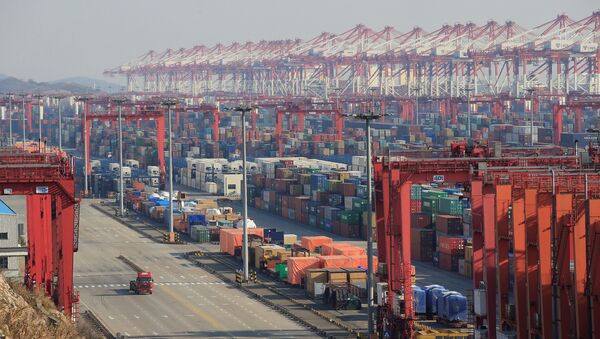"As for the impact of US-China trade and economic relations, it is relatively limited, if we look at current statistics," the NBS spokeswoman said at a briefing.
Liu noted that one should not forget about numerous external factors of uncertainty and instability, as the growth momentum of the global economy and trade has noticeably weakened, there is instability in the global financial market and significant volatility of basic goods prices.
"If you look at the situation inside China, the structural disbalance that has accumulated over a long time is quite substantial, and a number of enterprises, especially private, small and medium ones, still experience difficulties in doing business," the spokeswoman stressed.
READ MORE: Mainland China Touts Greater Economic Openness, Free Trade
Since then, the two countries have exchanged several rounds of trade duties against each other.
China increased energy imports in October compared to the same month last year, boosting oil and natural gas purchases by 31.5 per cent and 25.6 per cent, respectively, the NBS monthly data showed.
China imported 40.8 million tonnes of oil in October, with average daily oil imports amounting to about 1.316 million tonnes. In January-October this year, China boosted oil imports by 8.1 per cent year-on-year to 377.16 million tonnes.
Oil production in China in October increased by 0.3 per cent year-on-year to 16.09 million tonnes but fell 1.7 per cent to 157.2 million tonnes in the first 10 months.
Chinese industrial output, which reflects the volume of goods manufactured by large industrial enterprises, increased by 5.9 year-on-year in October, slightly accelerating from a 5.8-per cent increase in September, the NBS said.
In the first 10 months of 2018, Chinese industrial production grew by 6.4 per cent.



